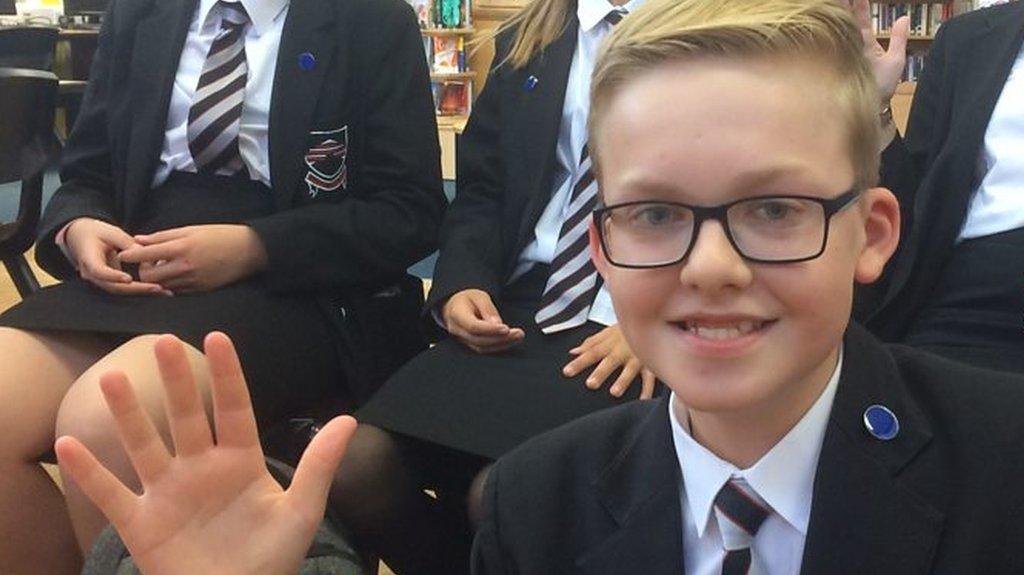Lowestoft school replaces French with British Sign Language classes
- Published
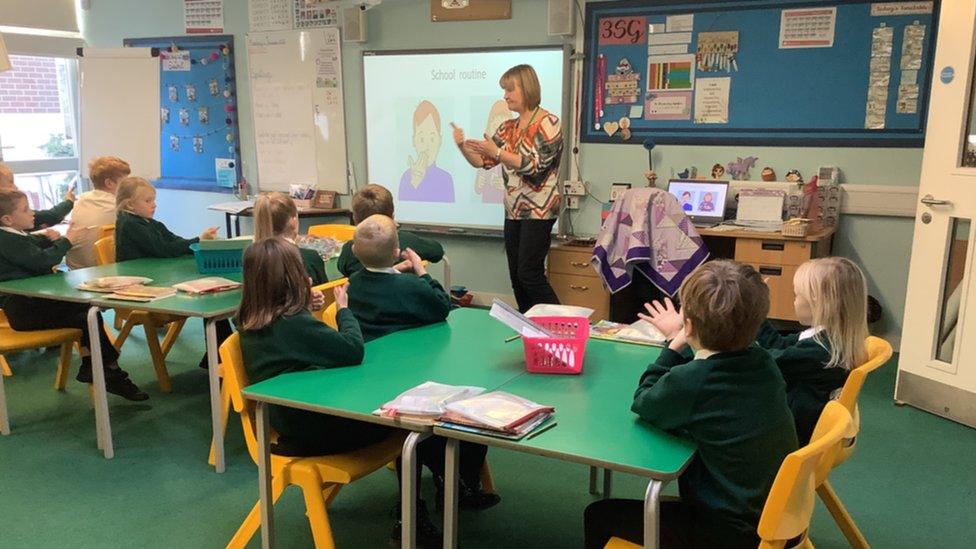
Ann Jillings has been teaching BSL to pupils at the school since September
A Suffolk primary school has replaced French classes with British Sign Language (BSL) lessons for all pupils.
Elm Tree Primary in Lowestoft has a Resource Base for the Deaf (RBD), which currently serves four pupils with hearing loss.
The school added BSL to the curriculum in September, so all of its students could communicate together.
Headteacher Julia Halliday said the children "really, really love it".
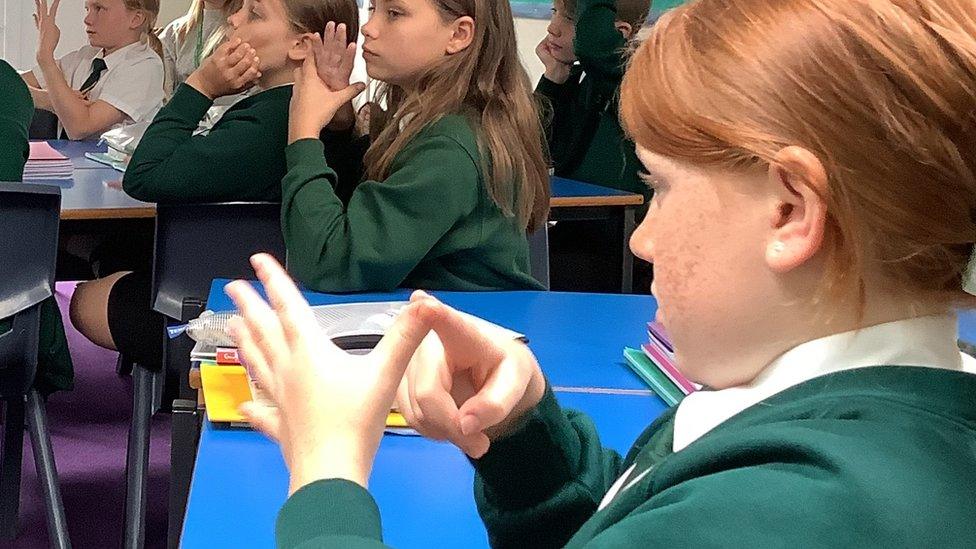
Students are taught how to finger-spell their names, as well as colours and general greetings
"We've always had young people with hearing loss, from profound deafness to young people who have now got cochlear implants," Ms Halliday added.
The school was inspired to add BSL to their curriculum after former deaf pupil, Daniel Jillings, successfully campaigned for BSL to be offered as a GCSE subject in England.
"We've watched him grow and we've watched him fight for the GCSE," said Ms Halliday.
"When that got passed through, I said 'hang on a minute, we don't really need to be doing Spanish and French when actually we should be doing BSL'."
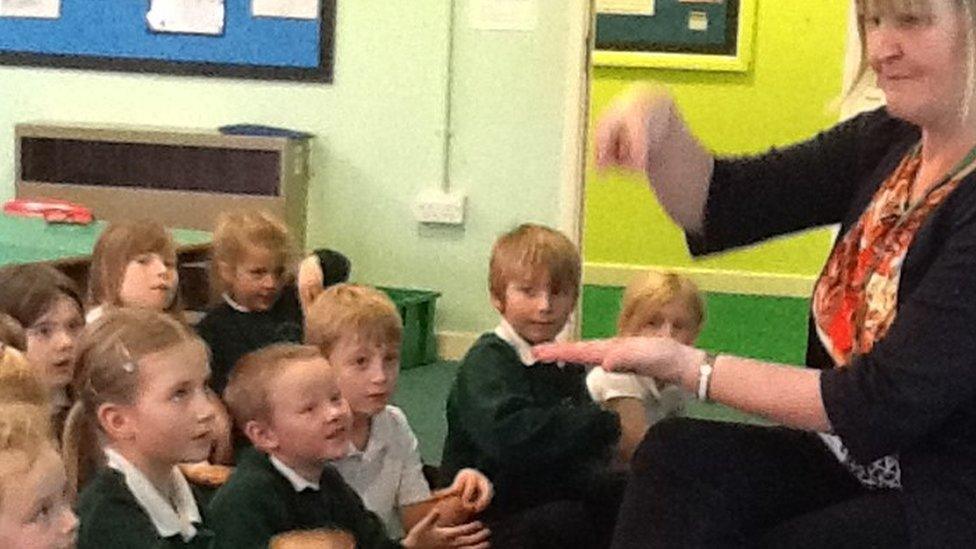
After Christmas, the school will also be holding BSL classes for reception pupils
Daniel's mum Ann Jillings said: "Daniel was born without his cochleas, so he has no hearing at all. I had no experience of using sign language or contact with the deaf community before he was born."
After gaining fluency in BSL, Ms Jillings began working with adults at Lowestoft Deaf Centre and has now taken up the position of teaching BSL at Elm Tree Primary.
"It's been quite a learning curve because there's a world of difference between teaching adults and teaching a group of 30 or so young children, but I am really enjoying it," she said.
BSL was recognised as its own language in 2003 but it was not set out in legislation until the British Sign Language Act was passed in 2022.
Ms Halliday said: "I think it's important that young people now understand that British Sign language is actually a language in its own right."
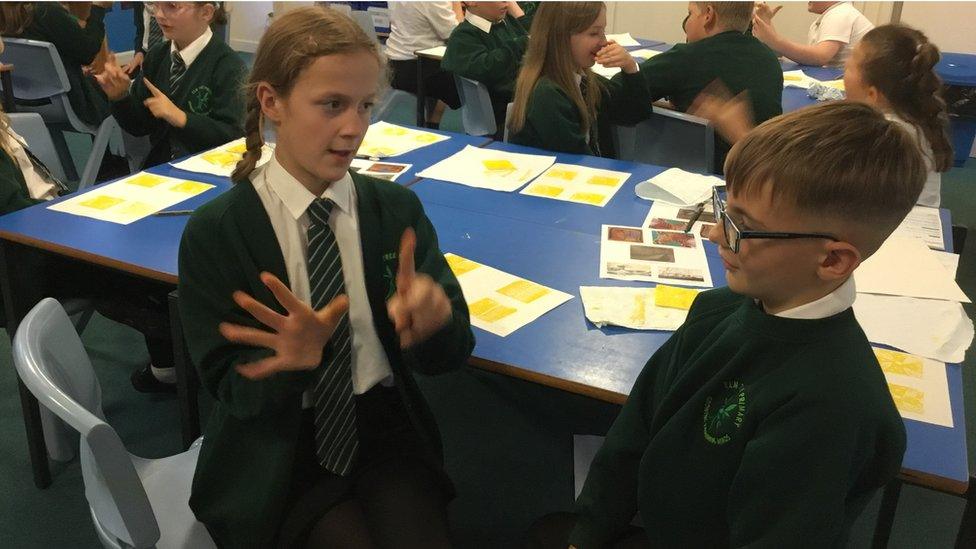
Julia Halliday said students have been using BSL throughout the school day, including on the playground in the morning
Ms Jillings said it was important that each student in the school had exposure to the language, and that all the children had been "enthusiastic" to learn.
She admitted that "in an ideal world", BSL would be taught by deaf people.
"I would like to see more opportunities for deaf people to be able to have access to the teaching qualifications they need, so that they can be empowered and equipped to teach their language in schools."

Follow East of England news on Facebook, external, Instagram, external and X, external. Got a story? Email eastofenglandnews@bbc.co.uk , externalor WhatsApp 0800 169 18
Related topics
- Published11 August 2023
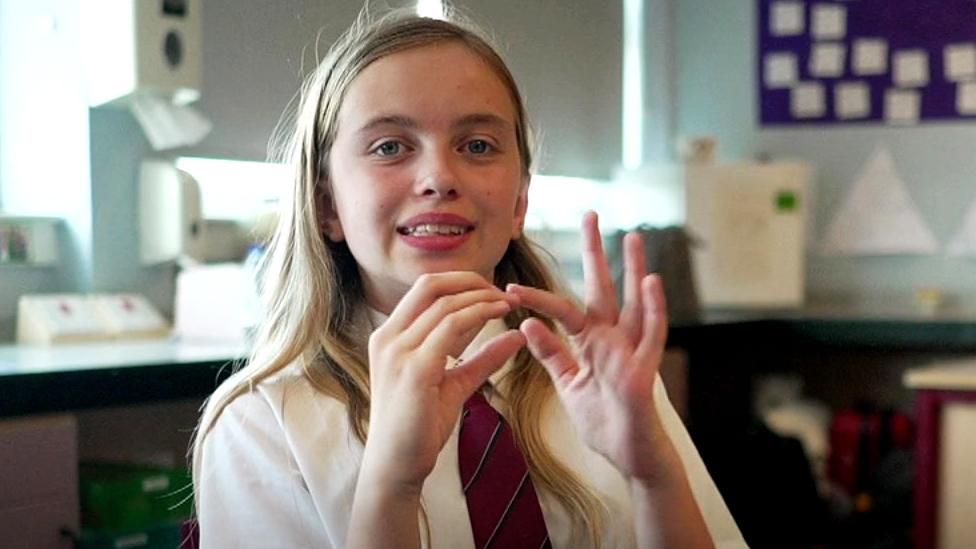
- Published6 July 2023
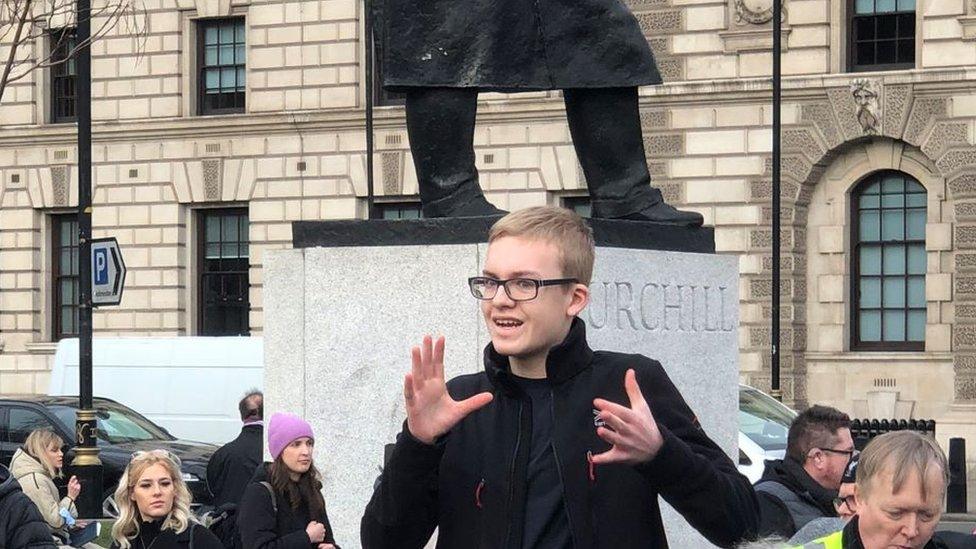
- Published31 March 2023
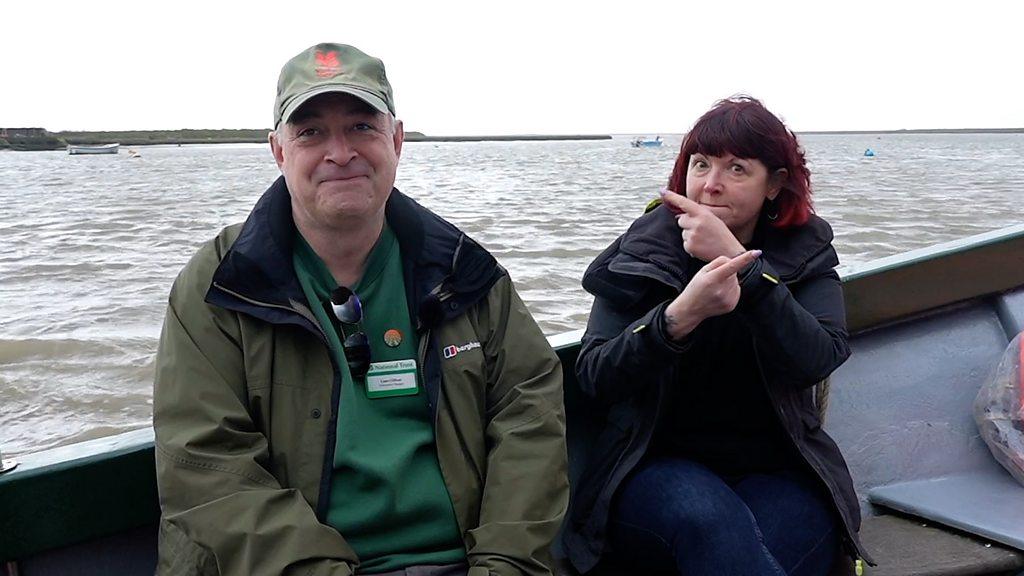
- Published27 September 2022
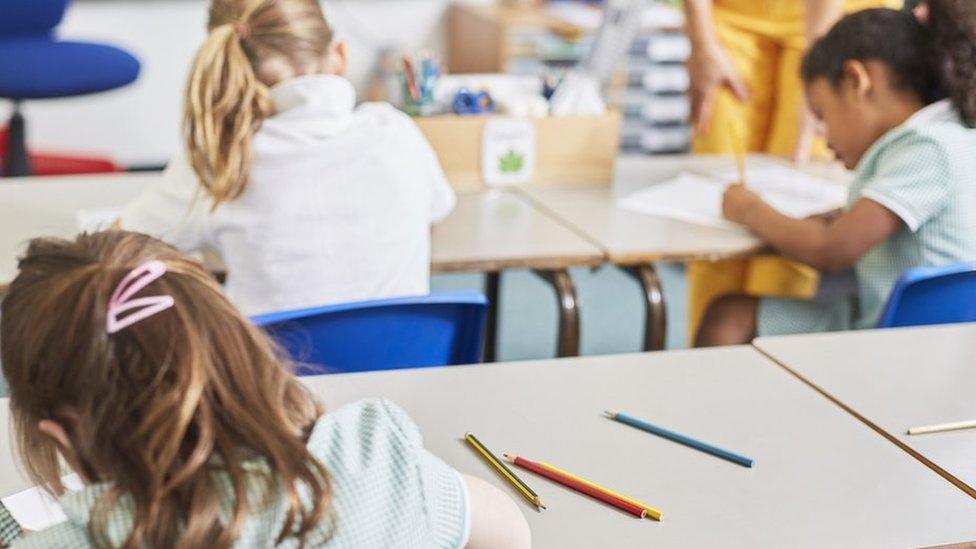
- Published3 October 2018
